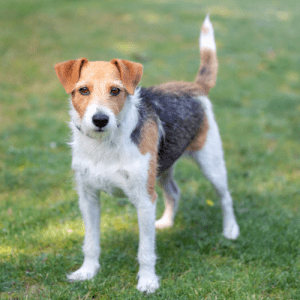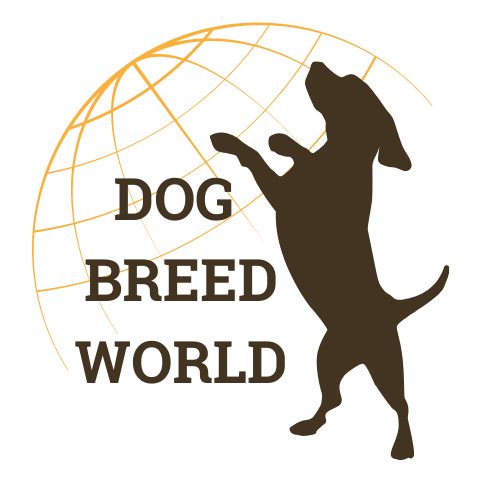
What Is The History Of The Parson Russell Terrier Dog Breed?
The Parson Russell Terrier is a breed of dog that was developed in England in the 1800s. The breed was named after its creator, the Rev. John “Jack” Russell. The Parson Russell Terrier is a descendant of the Fox Terrier and was bred to be a hunting dog. The breed is known for its energetic and playful personality. The Parson Russell Terrier is a popular pet dog in many countries worldwide.
What Does A Parson Russell Terrier Dog Look like?
Parson Russell Terriers have a short, dense coat that is either black, white, or tan in color. The breed’s signature look is a black and white coat, but there are also “tri-color” dogs with black, white, and tan markings. The coat is easy to groom and only requires occasional brushing to remove dead hair. These dogs do not shed much, making them a good choice for people with allergies.
How Big Is An Adult Parson Russell Terrier Dog?
The average Parson Russell Terrier stands between 10 and 15 inches at the shoulder, with males slightly larger than females. However, there is significant variation within the breed, and some dogs may be as small as 8 inches or as large as 18 inches at the shoulder. They weigh 13-17 pounds on an average. Parson Russell Terriers are generally compact and solidly built, with plenty of muscle and a short, dense coat. They should look athletic and agile rather than heavy or bulky.
Are There Other Dog Breeds Related To The Parson Russell Terrier Dog?
Yes, there are other dog breeds that are closely related to the Parson Russell Terrier and share similar traits. Some of these breeds include:
- Jack Russell Terrier: This breed is often considered very similar to the Parson Russell Terrier and was developed from the same lineage by the Rev. John “Jack” Russell. In some regions, the two names are used interchangeably.
- Russell Terrier: This breed is recognized by the American Kennel Club (AKC) and is closely related to the Parson Russell Terrier. It shares a common history and lineage with the Parson Russell Terrier and Jack Russell Terrier.
- Border Terrier: Like the Parson Russell Terrier, Border Terriers were bred for hunting and have a similar size and temperament. They are energetic, intelligent, and have a dense, wiry coat.
- Cairn Terrier: Cairn Terriers are also small, energetic terriers that were originally bred for hunting. They share the same feisty and independent nature as Parson Russell Terriers.
- Norfolk Terrier: Another terrier breed with similar characteristics, Norfolk Terriers are small, alert, and affectionate. They were bred as ratters and have a similar compact build.
- Norwich Terrier: Similar to the Norfolk Terrier, Norwich Terriers are closely related and share similar traits. They are lively, affectionate, and make great companions.
- Miniature Schnauzer: While not a terrier, Miniature Schnauzers share some traits with Parson Russell Terriers, including their small size, intelligence, and energetic nature.
It’s important to note that while these breeds may share certain traits with the Parson Russell Terrier, each breed also has its own unique characteristics and personality quirks. If you’re considering getting a dog, it’s always a good idea to research and learn more about the specific breed’s traits and needs to ensure it’s the right fit for your lifestyle and preferences.
What Is The Life Expectancy Of A Parson Russell Terrier Dog?
The typical lifespan of a Parson Russell Terrier Dog is 13-15 years. Some individual dogs have been known to live much longer, into their early 20s. While the average life expectancy is lower than that of many other dog breeds, the Parson Russell Terrier Dog’s active and energetic lifestyle helps to keep them feeling young and vital well into their senior years. Your Parson Russell Terrier Dog can enjoy a long and healthy life with proper care and nutrition.
Can A Parson Russell Terrier Dog Be Trained?
A Parson Russell Terrier Dog can be trained to do various things. They are intelligent dogs and can learn tricks, manners, behaviors, and commands easily. With patience and consistency, almost anything can be taught to a Parson Russell Terrier Dog. They excel at obedience training and are often used in agility trials and other dog sports. With the proper training, a Parson Russell Terrier Dog can be a well-mannered and obedient companion.
What Are Some Interesting Facts About A Parson Russell Terrier Dog?
Parson Russell Terriers are delightful and interesting dogs with a rich history and unique traits. Here are some intriguing facts about them:
- Origins and Naming: The breed was named after the Reverend John “Jack” Russell, who is credited with developing the breed in the 19th century. The name “Parson” refers to his occupation as a parson, or clergyman.
- Hunting Heritage: Parson Russell Terriers were initially bred for hunting purposes, particularly for fox hunting. Their small size, agility, and determination made them excellent at chasing and flushing out prey from their dens.
- Digging Enthusiasts: These terriers have a strong natural instinct to dig, a trait inherited from their hunting background. If you have a Parson Russell Terrier, be prepared for some enthusiastic digging in your garden!
- Versatile Athletes: Parson Russell Terriers excel in various canine sports, including agility, obedience, flyball, and earthdog trials. Their intelligence, agility, and eagerness to please make them ideal candidates for these activities.
- High Energy Levels: Parson Russell Terriers are known for their boundless energy and playfulness. Regular exercise and mental stimulation are essential to keep them happy and well-behaved.
- Intelligent Problem Solvers: These terriers are highly intelligent and have a knack for problem-solving. They may surprise you with their ability to figure out puzzles and challenges.
- Natural Vermin Control: Beyond their hunting history, Parson Russell Terriers are still skilled at keeping vermin under control. Their sharp senses and determination make them effective at keeping pests at bay.
- Social Butterflies: Parson Russell Terriers are generally sociable and friendly dogs. They enjoy interacting with people and can get along well with other dogs if properly socialized from a young age.
- Distinct Coat Colors: While the breed’s signature look is the classic black and white coat, Parson Russell Terriers can also come in a “tri-color” pattern, which includes black, white, and tan markings.
- Size Variability: The breed exhibits a considerable range in size, with some individuals standing as short as 8 inches and others as tall as 18 inches at the shoulder. This size variability is a unique characteristic of Parson Russell Terriers.
- Longevity: Despite their size, Parson Russell Terriers are known for their relatively long lifespan. Some individuals have been known to live well into their early 20s with proper care.
- Strong Bonds: These dogs often form strong bonds with their families and can be quite affectionate towards their human companions.
Remember that each individual dog is unique, and while these facts provide an overview of the breed’s characteristics, your specific Parson Russell Terrier’s personality and behavior may vary.
How Does A Parson Russell Terrier Dog Interact With People?
Parson Russell Terriers are known for being friendly and outgoing and generally enjoy spending time with people. They can be quite active, so if you’re looking for a relaxed lapdog, this may not be your breed. However, a Parson Russell Terrier is likely to be a great companion if you’re up for some fun and games. Like all dogs, they will need some basic obedience training, but they are usually well-behaved once they know the rules. Be prepared for some enthusiastic digging – it’s one of their favorite pastimes! – but overall, a Parson Russell Terrier makes a wonderful pet.
